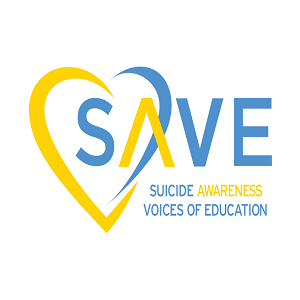 As parents and teachers, you are the first line of support for kids and teens. It’s important for you to have an open line of communication with them and build a sense of trust. When your kids and teens are having difficulties, you want them to feel comfortable turning to you for help.
As parents and teachers, you are the first line of support for kids and teens. It’s important for you to have an open line of communication with them and build a sense of trust. When your kids and teens are having difficulties, you want them to feel comfortable turning to you for help.
Just as important, is the ability to identify when your kids are struggling emotionally. Kids and teens tend to internalize their feelings. If something is troubling them, they may not speak up and ask for support. Sometimes, they don’t realize that help is available. So, it’s essential for parents and teachers to be able to detect when something is wrong and how to approach your kids and teens.
Getting your kids to open up and talk to you can feel like a challenge. The following tips can be helpful in starting a conversation and understanding what’s going on in their lives.
Tips to Start a Conversation
Make them feel safe.
You want to put kids and teens at ease so they feel comfortable talking to you. It is essential to make it clear why you are talking with them. Kids especially are fearful that they may be in trouble or are being punished if they are pulled aside to talk. Reassure them that this is not the case that you are there to offer support. Parents might consider scheduling a time to talk one-on-one on a regular basis, such as having lunch with your kid or teen weekly or biweekly.
Listen to them.
Take the time to actively listen to what your kid or teen has to say. Many times, all kids or teens want is someone who will listen to them. Try to understand their perspective before offering suggestions. Sometimes your own anxiety can prompt you to try to fix everything. But in many cases the best help you can offer is to listen attentively.
Affirm and support their need for help.
If a kid or teen tells you they’re feeling sad or upset, for example, tell them you’re proud of them for sharing their feelings. Let them know you appreciate the courage it took for them to talk with you and for trusting you to help them. If your kid seems to need more help than you can provide, consult with an appropriate professional. You may want to start by talking to the school psychologist.
Be genuine.
Try to avoid speaking from a script. Teens can tell when you’re not being genuine. If you are open, authentic and relaxed, it will help them to be the same.
Don’t be afraid to say I don’t know.
As a parent or teacher, it is OK to admit that you don’t have all the answers. However, if a kid or teen asks you something, you should make every effort to find an answer or someone who can help.
Warning signs of suicide: Suicide is preventable.
The two most important steps in preventing suicide are recognizing warning signs and getting help. Warning signs may include significant alcohol or drug use, a sudden drop in school performance or talking about death or hurting oneself. If you believe your child or student is in crisis, call 911 immediately and stay with him or her while help is on the way.
Source: APA | Talking to Kids When They Need Help, http://www.apa.org/helpcenter/help-kids.aspx | Reprinted with permission. Last updated: March 21, 2022
The American Psychological Association gratefully acknowledges Laurie D. McCubbin, PhD, Stephanie S. Smith, PsyD, Lynn Schiller, PhD, Andrew J. Adler, EdD, and Diane C. Marti, PhD, for contributing to this fact sheet.
Do you have concerns about your child? We invite you to call our Care Coordinators at 650.688.3625 or email us at careteam@stage.chconline.org to set up a free 30-minute Parent Consultation appointment.





